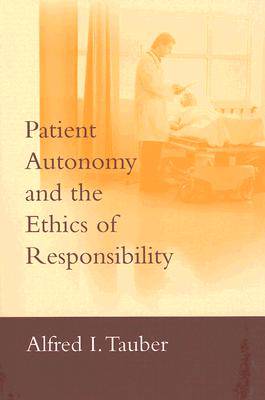
- Afhalen na 1 uur in een winkel met voorraad
- Gratis thuislevering in België vanaf € 30
- Ruim aanbod met 7 miljoen producten
- Afhalen na 1 uur in een winkel met voorraad
- Gratis thuislevering in België vanaf € 30
- Ruim aanbod met 7 miljoen producten
Omschrijving
The principle of patient autonomy dominates the contemporary debate over medical ethics. In this examination of the doctor-patient relationship, physician and philosopher Alfred Tauber argues that the idea of patient autonomy--which was inspired by other rights-based movements of the 1960s--was an extrapolation from political and social philosophy that fails to ground medicine's moral philosophy. He proposes instead a reconfiguration of personal autonomy and a renewed commitment to an ethics of care. In this formulation, physician beneficence and responsibility become powerful means for supporting the autonomy and dignity of patients. Beneficence, Tauber argues, should not be confused with the medical paternalism that fueled the patient rights movement. Rather, beneficence and responsibility are moral principles that not only are compatible with patient autonomy but strengthen it. Coordinating the rights of patients with the responsibilities of their caregivers will result in a more humane and robust medicine.
Tauber examines the historical and philosophical competition between facts (scientific objectivity) and values (patient care) in medicine. He analyzes the shifting conceptions of personhood underlying the doctor-patient relationship, offers a topology of autonomy, from Locke and Kant to Hume and Mill, and explores both philosophical and practical strategies for reconfiguring trust and autonomy. Framing the practicalities of the clinical encounter with moral reflections, Tauber calls for an ethical medicine in which facts and values are integrated and humane values are deliberately included in the program of care.
Specificaties
Betrokkenen
- Auteur(s):
- Uitgeverij:
Inhoud
- Aantal bladzijden:
- 328
- Taal:
- Engels
- Reeks:
Eigenschappen
- Productcode (EAN):
- 9780262701129
- Verschijningsdatum:
- 7/10/2005
- Uitvoering:
- Paperback
- Formaat:
- Trade paperback (VS)
- Afmetingen:
- 164 mm x 227 mm
- Gewicht:
- 462 g

Alleen bij Standaard Boekhandel
Beoordelingen
We publiceren alleen reviews die voldoen aan de voorwaarden voor reviews. Bekijk onze voorwaarden voor reviews.











